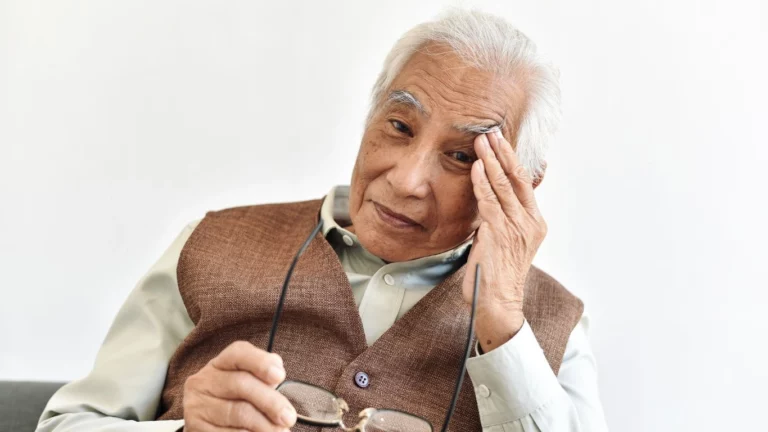High Blood Pressure and Memory Loss Risks – What You Need to Know
So, high blood pressure is a big deal, but what does it have to do with memory loss? You might be surprised to learn that those elevated numbers on the blood pressure monitor can mess with more than just your heart. Let’s dive into how high blood pressure is linked to memory problems and what you can do about it.
What’s the Link Between High Blood Pressure and Memory Loss?
Let’s start with the basics—high blood pressure, or hypertension, is when the force of your blood against the walls of your arteries is too high. Over time, this can cause damage to your arteries, heart, and organs. But here’s the kicker: it doesn’t just affect your physical health. It also takes a toll on your brain. Memory loss, cognitive decline, and even conditions like dementia are now being linked to high blood pressure, especially when it’s left untreated.
You might think that high blood pressure just makes your heart work harder, but its impact can extend to the brain as well. When blood vessels are damaged by hypertension, it can limit the amount of oxygen and nutrients your brain gets. Over time, this reduced blood flow can impair memory and cognition. Yikes!

How Does High Blood Pressure Damage Your Brain?
High blood pressure can harm your brain in a couple of ways:
- Damaging Blood Vessels: When your blood pressure stays high, it can cause your blood vessels to stiffen and narrow. This makes it harder for your brain to get the blood flow it needs. Over time, this can lead to vascular dementia, a condition where the brain doesn’t get enough oxygen to work properly, leading to memory problems and confusion.
- Brain Lesions: High blood pressure can lead to tiny areas of damage in your brain, called white matter lesions. These can mess with brain function, making it harder to remember things, concentrate, and process information. Think of it like a slow drain on your mental clarity.
- Increased Risk of Stroke: A stroke happens when the blood supply to part of your brain is blocked. High blood pressure is one of the leading causes of stroke. When a stroke occurs, it can cause permanent brain damage, including memory loss and cognitive impairment.

Are Older Adults at Higher Risk?
Yes, older adults are at greater risk when it comes to high blood pressure and memory loss. As we age, our blood vessels naturally stiffen, and high blood pressure speeds up that process. The brain’s ability to adapt to changes in blood flow can also decrease, making older adults more vulnerable to cognitive decline.
But here’s some good news: managing blood pressure can make a difference at any age. Taking action to control your blood pressure can help protect your brain and prevent memory problems later on.
What Can You Do to Prevent Memory Loss?
It’s not all doom and gloom. You have a lot of control over your health. There are things you can do to keep your blood pressure in check and protect your memory. Here’s how:
1. Monitor Your Blood Pressure Regularly
You don’t need to wait until your next doctor’s appointment to know if your blood pressure is out of whack. There are plenty of at-home monitors that let you check it easily. Keeping track will help you catch any changes early so you can take action.
2. Exercise Regularly
Exercise is great for lowering blood pressure and keeping your heart (and brain) healthy. A simple walk every day can make a huge difference. Aim for at least 30 minutes of moderate exercise most days of the week. Your heart and brain will thank you.
3. Eat a Heart-Healthy Diet
A diet rich in fruits, vegetables, whole grains, and lean proteins can help lower blood pressure and support brain health. Foods like leafy greens, berries, nuts, and fish are especially good for your brain.
4. Cut Back on Salt
Too much sodium can raise your blood pressure, so try to limit your salt intake. Read labels, and avoid processed foods, which often contain a ton of hidden sodium.
5. Manage Stress
Chronic stress can raise your blood pressure and hurt your brain. Finding ways to relax—whether it’s through meditation, deep breathing, or just taking time out for yourself—can help reduce stress and improve your overall health.
6. Get Enough Sleep
Sleep is crucial for both heart and brain health. Poor sleep can raise your blood pressure and contribute to cognitive decline. Aim for 7-9 hours of sleep each night to give your brain the rest it needs.
7. Consider Medication (If Necessary)
If lifestyle changes aren’t enough to control your blood pressure, your doctor might prescribe medication. There are many options out there, so talk to your doctor about what’s best for you.

What Else Can High Blood Pressure Do to Your Brain?
In addition to memory loss, high blood pressure can increase your risk for other cognitive issues, like:
- Difficulty concentrating: If your brain isn’t getting enough oxygen, it can make it harder to focus or think clearly.
- Dementia: Chronic high blood pressure can increase your risk of developing vascular dementia, where blood flow to the brain is reduced over time.
- Alzheimer’s Disease: Studies have shown that high blood pressure in midlife may increase the risk of developing Alzheimer’s disease later on.
It’s important to understand that while high blood pressure increases the risk of these conditions, it doesn’t guarantee they’ll happen. The good news is, you can take steps to reduce your risk by managing your blood pressure.

Appendices
References
- American Heart Association (2024). “High Blood Pressure and Your Brain: How Hypertension Affects Memory.” Read Article
- National Institutes of Health (2024). “Hypertension and Cognitive Decline: Understanding the Risks.” Read Article
- Harvard Health Publishing (2023). “How High Blood Pressure Can Affect Your Brain.” Read Article
FAQs
- Can high blood pressure cause memory loss?
Yes, chronic high blood pressure can lead to memory problems, cognitive decline, and even increase the risk of conditions like dementia. - Is it too late to protect my brain if I’m older?
No, it’s never too late. Even in older age, managing blood pressure can help protect your brain from further damage. - How can I tell if my blood pressure is affecting my memory?
Memory loss related to high blood pressure often develops slowly. If you notice difficulty concentrating or remembering recent events, it’s worth talking to your doctor. - Can lowering my blood pressure improve my memory?
Yes! Studies show that lowering blood pressure can help improve cognitive function and protect against further memory decline. - Do I need medication to manage my blood pressure?
Lifestyle changes like diet and exercise can help control blood pressure, but sometimes medication is necessary. Your doctor can help determine the best approach.
Disclaimer:
The information in this article is for educational purposes only and does not substitute for professional medical advice. Always consult with your healthcare provider for personalized guidance on managing high blood pressure and its effects on memory.

Dr. Gwenna Aazee is a board-certified Internal Medicine Physician with a special focus on hypertension management, chronic disease prevention, and patient education. With years of experience in both clinical practice and medical writing, she’s passionate about turning evidence-based medicine into accessible, actionable advice. Through her work at Healthusias.com, Dr. Aazee empowers readers to take charge of their health with confidence and clarity. Off the clock, she enjoys deep dives into nutrition research, long walks with her rescue pup, and simplifying medical jargon one article at a time.







